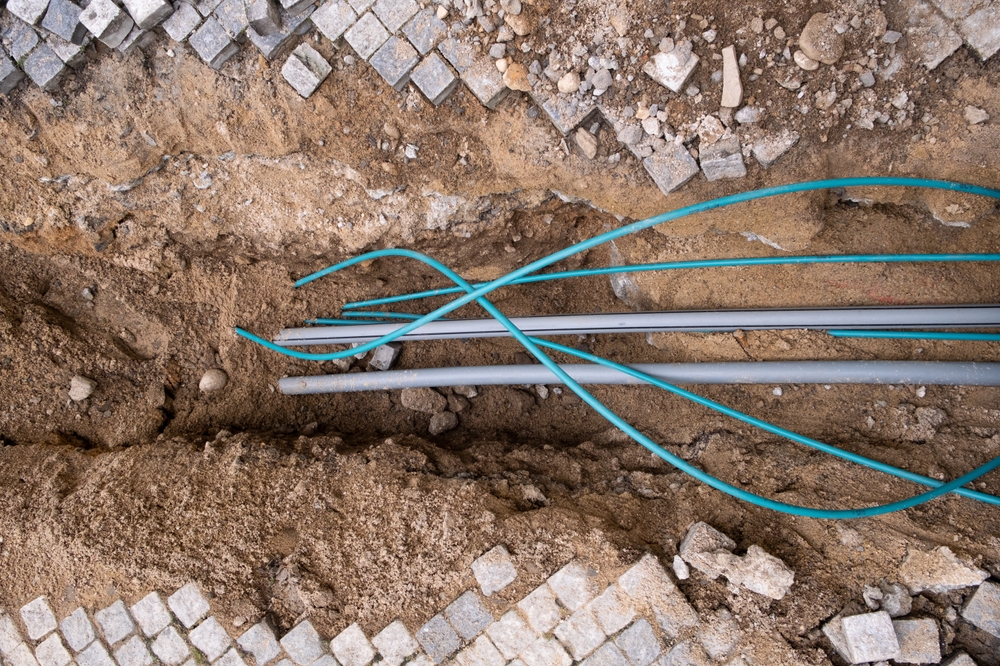

Starting a new construction project is always exciting, but before the heavy machinery rolls in and foundations are poured, there’s an essential phase every developer in Dalton, GA, must prioritize: underground utility installation. Whether you’re developing a commercial site or a residential neighborhood, understanding the complexities of subsurface infrastructure is not just a legal necessity—it’s a critical element to the long-term success and safety of your project.
The Importance of Site Prep for New Development in Dalton
Effective site prep for new development in Dalton lays the foundation for a smooth underground utility installation process. Dalton’s unique geological features—marked by red clay soil and varying subsurface rock layers—can present hidden challenges for developers unfamiliar with the area. Before trenching or boring begins, comprehensive site assessments should be conducted to understand the terrain’s specifics. Geotechnical surveys, topographical mapping, and subsurface utility engineering (SUE) help reduce the risk of project delays due to unforeseen underground conditions.
Clearing and grading are typically the first physical steps in site preparation. This ensures the land is stable and level, allowing utility crews easy access to the installation zones. Equally important is securing all necessary permits from the city of Dalton and Whitfield County. Permitting processes can be time-consuming, so starting early and working with local officials helps mitigate red tape that could slow down development timelines.
Beyond regulatory compliance, proper site preparation addresses safety concerns. Developers need to account for erosion control measures and soil stabilization, especially on sloped terrains common in North Georgia. Installing utilities like water, gas, electric, and telecommunications lines without such preparation could lead to infrastructure shifts or failures post-installation. Experienced contractors specializing in Dalton-area projects understand these nuances and can guide developers through effective site prep strategies.
Navigating Commercial Excavation Services in North Georgia
Choosing the right commercial excavation services in North Georgia is pivotal for a successful underground utility installation. While many contractors advertise excavation capabilities, not all possess the expertise required for complex utility installs in the Dalton region. Excavation here often involves more than simple digging—it may include rock trenching, horizontal directional drilling (HDD), and vacuum excavation, especially near existing infrastructure or in environmentally sensitive areas.
Dalton developers should seek excavation partners with a strong track record in both urban and rural projects. Excavators familiar with local zoning ordinances, utility codes, and environmental regulations can help minimize costly mistakes. These professionals often work in tandem with civil engineers to determine the precise depth, slope, and alignment of utility trenches, ensuring compliance with safety and operational standards.
Proper excavation also facilitates the safe installation of critical systems. For example, gas lines must meet strict depth requirements, while electrical conduits require specific bedding materials to prevent future line faults. Missteps in excavation not only delay projects but can also lead to dangerous utility strikes. Hence, working with experienced North Georgia commercial excavation providers is not just a matter of efficiency—it’s a matter of safety and liability protection.
Key Considerations in Underground Utility Installation
Once site prep and excavation are underway, attention shifts to the core process: underground utility installation. In Dalton, projects typically involve the integration of water, sewer, gas, power, and data services, each with its own set of regulatory standards and installation protocols.
One of the primary considerations is utility separation. To prevent cross-contamination and ensure safety, specific distance requirements between different utilities must be strictly maintained. For instance, gas lines must not only be buried at a regulated depth but must also remain a certain distance from water and electric lines. Coordinating the installation sequence—often starting with water and sewer lines followed by gas and electric—helps avoid these risks.
Material selection is another critical aspect. Modern installations favor corrosion-resistant pipes and conduits, such as high-density polyethylene (HDPE) and PVC, which are well-suited to the fluctuating moisture levels in Dalton’s clay-heavy soils. Inspections at various stages, including pre-backfill checks, confirm that installations meet engineering specifications and local codes.
Weather can also influence underground utility installation schedules in Dalton. Heavy rains, typical in North Georgia’s subtropical climate, can saturate soils and delay trenching or backfilling operations. Developers should plan for potential weather-related interruptions in their project timelines.
Lastly, effective communication between developers, utility providers, and contractors is crucial. Misalignment on utility routing or connection points can lead to expensive rework or conflicts during future site expansions. Clear documentation and frequent progress updates help prevent such issues.
Post-Installation Testing and Documentation
Completion of utility installation doesn’t signal the end of the underground phase. Testing and documentation are equally vital to confirm that utilities are functional and safe. Hydrostatic pressure testing, mandrel testing for sewer lines, and continuity tests for electrical conduits are standard practices to verify integrity before service activation.
In Dalton, municipal inspectors often require detailed as-built drawings showing the precise locations and depths of all installed utilities. These documents become invaluable assets for future maintenance or site modifications, reducing the risk of accidental line strikes. Developers should work with contractors who prioritize comprehensive record-keeping and offer digital mapping services for long-term infrastructure management.
It’s also advisable to schedule post-installation site stabilization. Backfilled trenches can settle over time, potentially causing surface depressions or asphalt cracking if located beneath roads or parking lots. Proper compaction during backfill and post-project landscaping reduce the likelihood of such issues, preserving both the aesthetics and safety of the development.
Long-Term Considerations for Dalton Developers
Thinking beyond the immediate construction phase can offer long-term benefits for Dalton developers. Investing in quality underground utility installation today can significantly reduce repair costs and service disruptions in the future. Durable materials, expert craftsmanship, and detailed records all contribute to infrastructure longevity.
Developers should also consider the potential for future utility upgrades or expansions. Installing extra conduits or oversized pipes during the initial build can simplify future projects, avoiding the need for disruptive excavation later. Coordinating with local utility companies regarding future service demands allows developers to anticipate capacity needs and prevent early infrastructure obsolescence.
Finally, working with local contractors who understand Dalton’s unique challenges—its geology, weather patterns, and municipal regulations—offers an advantage. These professionals can help navigate unexpected challenges efficiently, keeping projects on schedule and within budget.
Conclusion
Underground utility installation in Dalton, GA, is a complex process requiring careful planning, expert execution, and ongoing attention to detail. From initial site prep for new development in Dalton to selecting skilled commercial excavation services in North Georgia, every phase plays a role in ensuring successful, sustainable, and safe infrastructure development. By prioritizing quality and collaboration, developers can lay the groundwork—both literally and figuratively—for thriving, resilient projects.
Need an Underground Pipe Company Near You?
Established in 2021, Grade-1 Underground is your number-one go-to company for your underground pipe needs. From Water mains to sewer lines, we have you covered. Our team also provides site work such as excavation, grading, land clearing, and much more! For any questions, please give us a call today!
